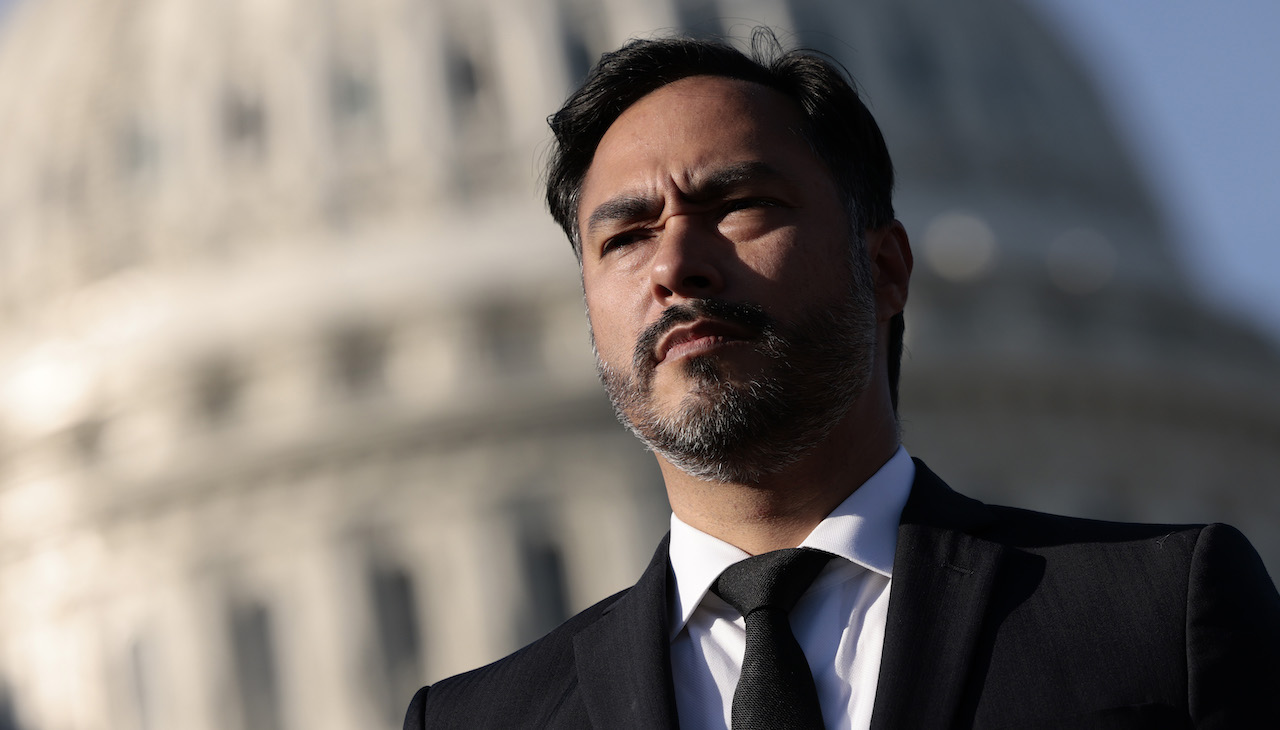
Biden pressured to implement proposed rules that expands healthcare access to DACA recipients
80 U.S. lawmakers called on the Biden Administration in a letter to implement the proposed rule that the administration first released this past April.
A group of 80 Democratic lawmakers led by Sens. Cory Booker (N.J.), Dick Durbin (Ill.), Mazie Hirono (Hawaii) and Reps. Joaquín Castro (Texas) and Pramila Jayapal (Wash.), are calling on the Biden Administration to implement a measure that’d expand access to federal healthcare benefits for those in the Deferred Action for Childhood Arrivals (DACA) program.
“Despite living in the United States for most of their lives and meeting strict and extensive requirements to obtain deferred action, DACA recipients, who meet other program eligibility criteria, remain ineligible for federally funded health coverage,” wrote the lawmakers.
“As a result, DACA recipients are uninsured at three to five times the rate of the general population.”
The lawmakers asked the Centers for Medicare & Medicaid Services (CMS) Administrator Chiquita Brooks-LaSure to hurry the process of implementation of the measure first introduced by the administration last April that both Becerra and Brooks-LaSure highly praised.
Castro has pushed the Department of Health and Human Services (HHS) to expand access to coverage for DACA recipients ever since Biden first took office.
In 2021, the Texas Congressman led more than 90 House members in a letter calling on Biden and then acting HHS Secretary Norris Cochran to grant access to ACA benefits for DACA recipients during the COVID-19 pandemic.
Castro and Booker have previously collaborated on similar efforts, including a letter to Health and Human Services Secretary Xavier Becerra last November asking for Affordable Care Act (ACA) and Children’s Health Insurance Programs (CHIP) access for DACA recipients.
Under Biden’s rule, DACA recipients would be considered as “lawfully present” in the U.S. to access some Medicaid and CHIP, Health Insurance Marketplaces and the Basic Health Program, both benefits offered by the ACA.
To access ACA benefits, foreign nationals in the U.S. must be considered lawfully present in the country; other deferred action programs such as Temporary Protected Status (TPS) and Deferred Enforced Departure (DED) qualify for such health care effects.
The recipients, also known as Dreamers, are undocumented immigrants brought to the country as minors and registered for the program, receiving work permits, deferral from deportation and even advanced parole to travel abroad in few cases.
DACA offers similar benefits to that of the other programs, with the exception of access to key health care programs as they are excluded from CHIP and most aspects of Medicaid, unlike recipients of TPS and DED.
RELATED CONTENT
Such disparities could find themselves in other aspects of DACA recipients’ lives, according to the lawmakers.
“In defining eligibility for these populations, HHS appropriately included recipients of deferred action, consistent with longstanding federal policies for Social Security benefits and driver’s licenses under the REAL ID Act. However, when the DACA program was created, HHS excluded its recipients from health coverage. It is long past time to reverse this exclusive, and harmful policy,” they wrote.
“As eighty percent of the DACA recipients who do have health care coverage receive it through their employer, DACA recipients are vulnerable to losing their health insurance, as health care access is largely based on their ability to access job opportunities,” they wrote.
“Consequently, DACA recipients often do not have the flexibility to pursue different career opportunities, including starting new businesses or participating in continuing education.”
The over 80 lawmakers said that excluding DACA beneficiaries from those health care programs can carry large societal costs, in part because “a large portion of DACA recipients are medical and health professional students.”
“Their access to health care during their education is vital to growing the health care workforce,” they said.The lawmakers’ letter, which was included as a public comment to the proposed rule, calls for DACA beneficiaries to be able to enroll in the health programs as of November 1, 2023.
If the rule is implemented, DACA recipients will have a 60-day special enrollment period starting on the effective date of the final rule.
The lawmakers’ letter calls for DACA beneficiaries to be able to enroll as of November 1, 2023.
Should the rule be implemented, DACA recipients will have a 60-day special enrollment period starting on the effective date of the final rule.











LEAVE A COMMENT:
Join the discussion! Leave a comment.